7 GMO foods that will blow your mind
Categories: Science
By Pictolic https://pictolic.com/article/7-gmo-foods-that-will-blow-your-mind.htmlFor some time now it has become fashionable to fight genetically modified foods. But this hardly stopped their development.
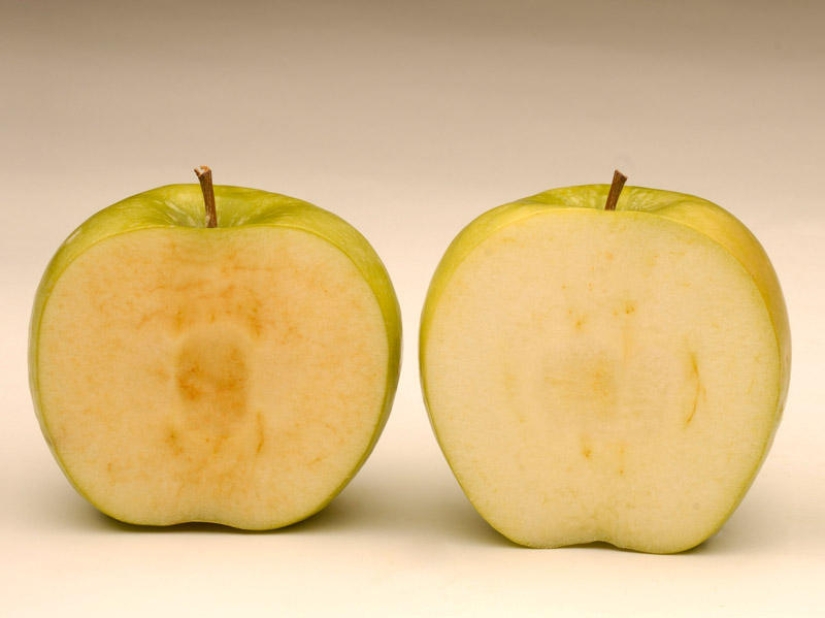
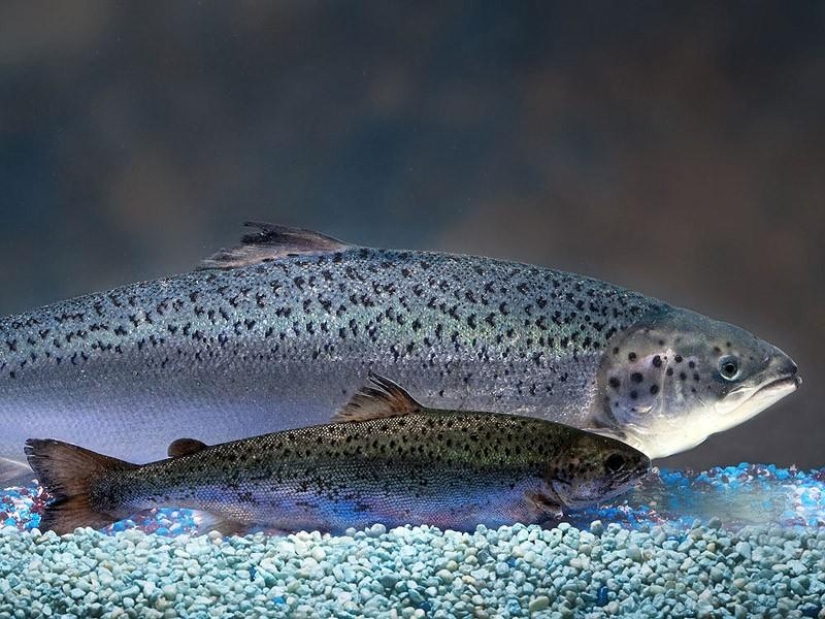
1. "Frankenfish"
Instead of regular salmon
The frankenfish is currently under investigation by the US Food and Drug Administration. AquaBounty's brainchild threatens to develop a market for transgenic fish "identical to normal Atlantic salmon."
Sounds like a win-win business model, but environmentalists say that if GMO salmon somehow gets into normal natural conditions, it will begin to reduce the population of Atlantic salmon even more. In addition, the long-term prospects for the impact on human health are still not known for certain.
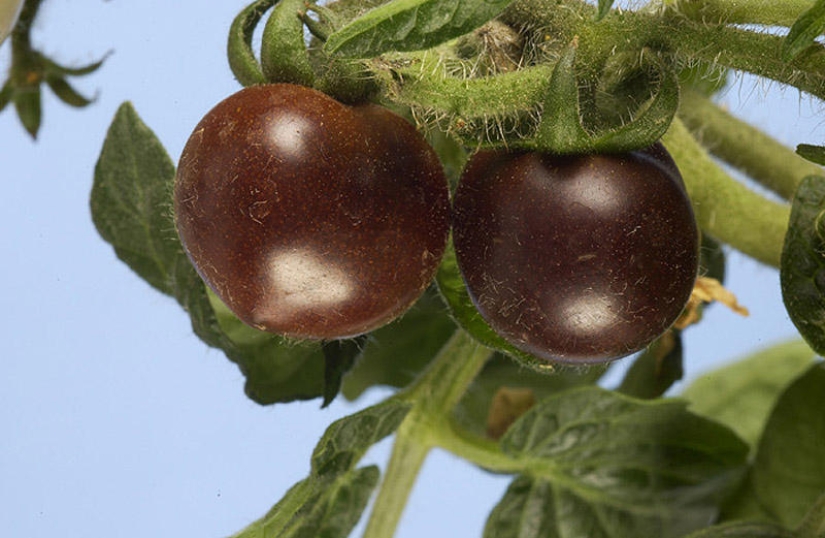
2. Purple tomatoes
Emphasis on antioxidants
Reminds me of the Simpsons episode with tomatoes crossed with tobacco, doesn't it? But in fact, everything is more prosaic.
In regular tomatoes, the dark color comes from the anthocyanin pigment, a well-known antioxidant also found in blueberries and cranberries that helps the body fight cancer and other diseases.
“In these tomatoes, you can get the same chemical compounds that are in blueberries or cranberries,” says Professor Cathy Martin, one of the curators of the artificial tomato project.
New research, however, shows that high levels of antioxidants can be harmful for people with certain types of cancer. GMO critics also have something to say: "Nature has already come up with all the foods we really need," says EatDrinkPolitics.com founder and activist Michelle Simon.
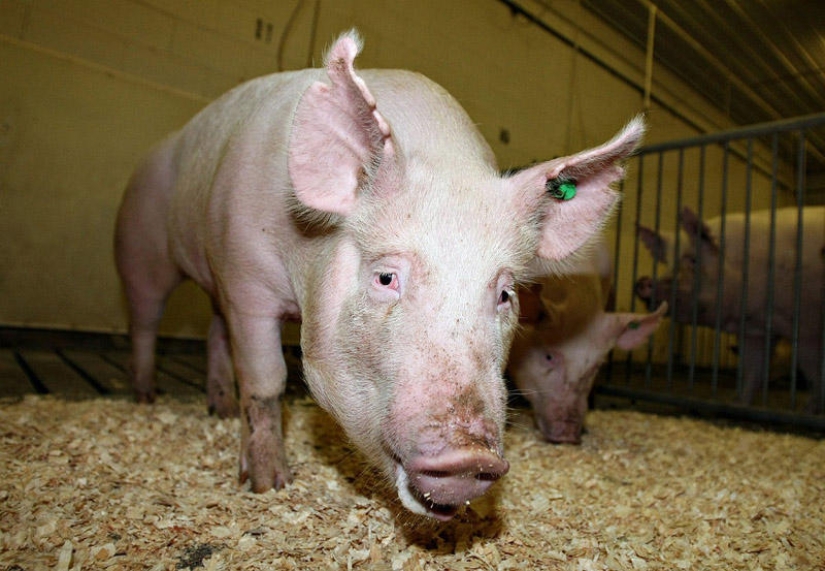
3. Super pigs
Genetic changes in pig manure
The typical pig diet in the US, Canada, and many other countries consists of corn and other grains, which even people know are not very good for digestion. Phosphorus in these crops is a separate issue, and when released, pig manure can be toxic to surrounding farmland waters and the environment.
"The problem is not the pigs," says Kathy Holtslender of Beyond Factory Farming. The phytase dietary supplement is designed to help the pig digest and absorb phosphorus without harm. And, of course, all this does not apply to wild pigs, which are not fed with grain crops.

4. Apple 2.0
More beautiful
So far, this development seems to be the least necessary and is also awaiting approval from the Office of Sanitary Inspection. Okanagan Specialty Fruits has unveiled a genetic additive that keeps apples from turning brown no matter how long ago they were cut.
The US Apple Association does not yet know how to deal with this. “Maybe such apples do not pose a threat to health, but the question is how the buyer will perceive this innovation. How will his attitude towards apples in general change? Is it really necessary? Wendy Brannen comments.
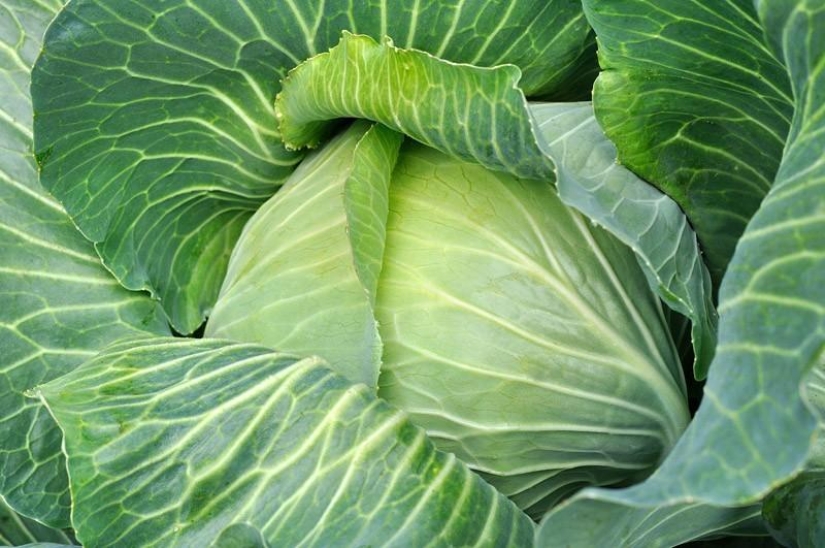
5. Scorpion cabbage
Instead of pesticides
Scientists from Beijing, China, went even further, deciding to do the best in the tradition of Asian sophistication. They developed a strain of cabbage that contains its own poison, poisoning harmful caterpillars without the help of pesticides and external chemicals. Caterpillars that attack cabbage die, and in relation to humans, the toxin, according to scientists, is harmless.
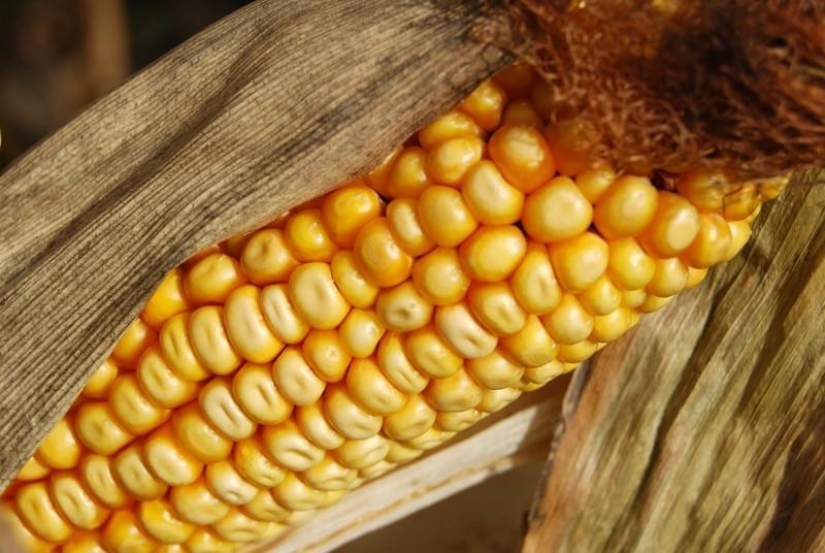
6 Killer Corn
Able to defend yourself
While most GM corn has been used in animal feed, ethanol and processed foods, this particular variety has been on the US shelves since 2012. It is derived from the genes for three beta-toxins that make corn an insecticide in its own right.
What does it mean? For example, if corn on the cob is attacked by some kind of nasty thing like insects or parasites, the corn itself can defend itself. In addition, it contains the so-called. the Roundup Ready gene, which makes corn resistant to herbicides and agricultural chemicals.

7. And finally, breast milk. Now from ordinary cows.
Animals learn human skills
Of course, we are used to thinking that feeding offspring, at least in the early stages of life, is something that a person copes with better than an animal. In China, however, they are doing a lot to ensure that dairy cows can compete with the mother in the matter of feeding the human cub.
Chinese scientists introduced human genes into cow embryos back in 2011, creating cows whose milk is "identical to the human variety and has the same immune-boosting and antibacterial qualities as breast milk."
The product is still being tested, but animal advocates, as you understand, do not share the enthusiasm of scientists. During two experiments, 10 out of 42 experimental calves died shortly after birth. A spokesman for the Royal Society for the Protection of Animals said the organization was "extremely concerned" about how the cows were produced.
The Chinese, on the other hand, refer to the high content in milk of protein and substances inherent in human breast milk. As for the issue of the safety of such milk for health, the end will not be put here, it seems, for a long time. Genetically modified milk is yet to undergo extensive clinical trials.
Keywords: GMO products
Post News ArticleRecent articles

It's high time to admit that this whole hipster idea has gone too far. The concept has become so popular that even restaurants have ...

There is a perception that people only use 10% of their brain potential. But the heroes of our review, apparently, found a way to ...

New Year's is a time to surprise and delight loved ones not only with gifts but also with a unique presentation of the holiday ...